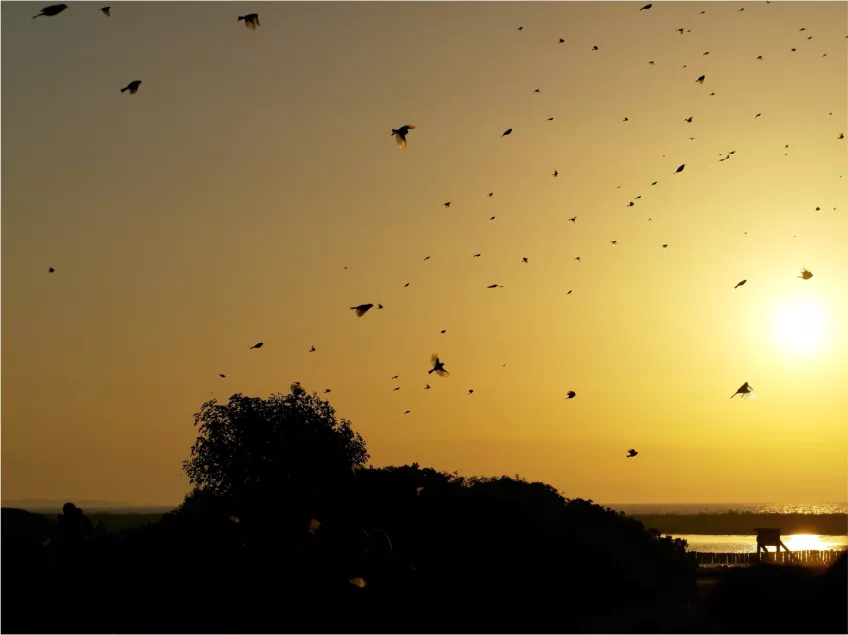Ecology of Animal Migration
An international course for postgraduate students
This November (2025) the international PhD course on the Ecology of Animal Migration will run again. Invited and Lund-based international authorities in the field give lectures that cover different aspects of animal migration. PhD students working on animal migration and related animal movement topics are encouraged to apply.
Animals move across different spatial and temporal scales either as part of their daily life or as seasonal migrations to exploit resources in the environment. Well known examples are the global scale seasonal migrations in birds, sea turtles, fish and mammals, such as whales and wildebeests. Also movements at smaller scales occur, such as the vertical movements in plankton, the dispersal in soil collembolans and movements of pollinating insects. But what are the ecological causes and evolutionary consequences of animal movements?
Course contents
During this two-week course you will get insight in a number of different methods and approaches to study the migration of animals, ranging from experimental studies in the laboratory to tracking long-distance migration in wild animals. The course will also cover theoretical concepts in animal migration, both from an evolutionary and ecological perspective, as well as give an understanding of migration across different lifestyles and habitats in both aquatic and terrestrial environments. We will also address conservation aspects of animal migration.
The course consists of both lectures and discussions and includes a conference session where you will present and discuss your own research, as well as an excursion to the bird ringing station on the Falsterbo peninsula.
Time-period
The next course will take place from 3–14 November 2025.
Course fee
The course fee is 8 000 SEK, including VAT. We will send payment details if you are admitted to the course.
How to apply
The application is now open. We will admit 40 people to the course. Admission will be determined in the order in which applications are received, among candidates whose research interests aligns with the course.
Course leaders
Anders Hedenström
Professor
Email: Anders [dot] Hedenstrom [at] biol [dot] lu [dot] se
Sissel Sjöberg
Researcher
Email: Sissel [dot] Sjoberg [at] biol [dot] lu [dot] se
Cecilia Nilsson
Researcher
Email: Cecilia [dot] Nilsson [at] biol [dot] lu [dot] se
Find your way to Lund
Learn more about life in Sweden and how to reach Lund.
Preliminary schedule 2025
Schedule week 1
Monday 03 November 2025
Welcome lectures
Presentations by course participants
Tuesday 04 November 2025
Presentations by course participants
Wednesday 05 November 2025
Locomotion
Thursday 06 November 2025
Orientation and navigation
Friday 07 November 2025
Modelling migration
Saturday 08 November 2025
Field excursion to Falsterbo
Sunday 09 November 2025
Genetics of migration
Schedule week 2
Monday 10 November 2025
Ecophysiology
Tuesday 11 November 2025
Methods in migration research
Wednesday 12 November 2025
Patterns and strategies of migration
Thursday 13 November 2025
Tracking migrants across scales
Friday 14 November 2025
Migration and conservation
Group exam/discussion


